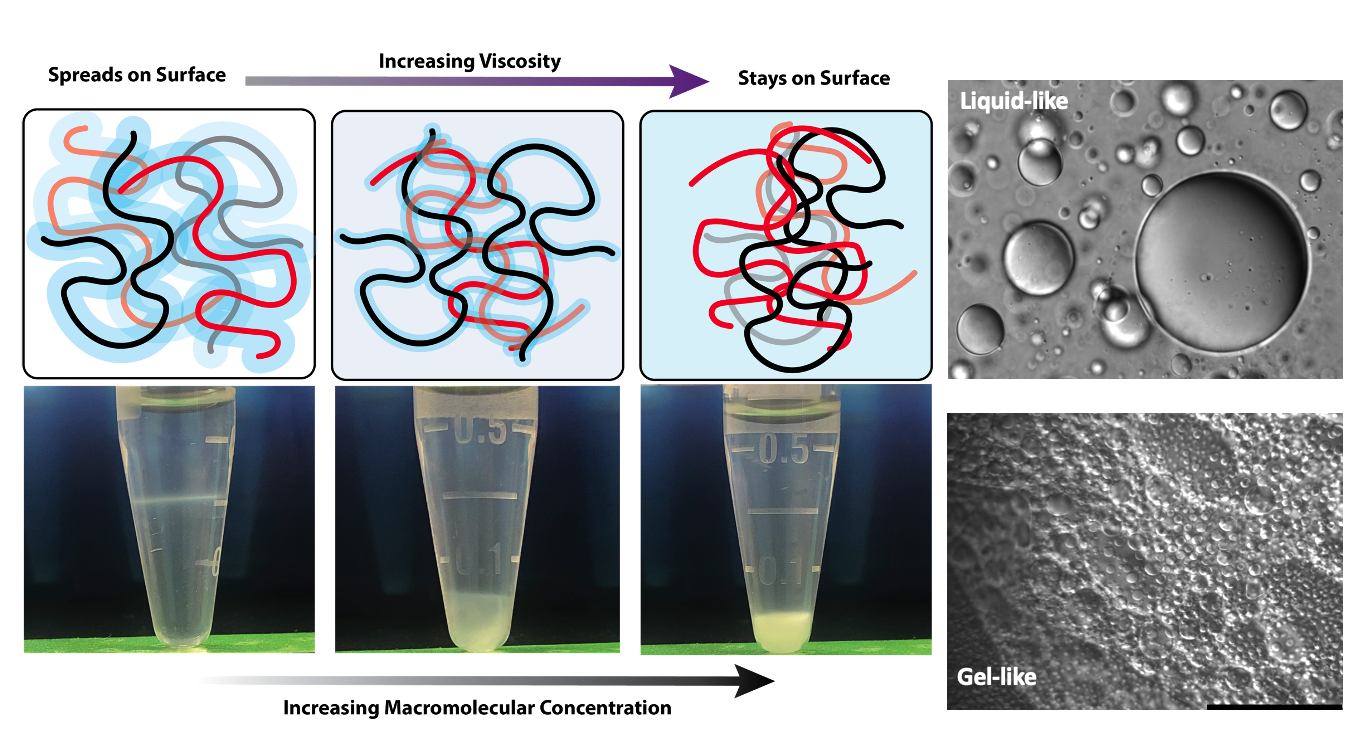LSU Chemistry professor receives USDA funding to develop greener cotton fabric treatments
August 29, 2022
Branded as “The Fabric of Our Lives,” cotton is a natural fiber grown from the earth and considered a more sustainable fabric option than manufactured fibers that require chemically intensive processes.
Although cotton is plant-based and more sustainable than synthetic fibers, it often needs to be functionalized to create desired properties, such as fire-retardancy, wrinkle resistance, and microbial protection. These treatments could involve hazardous chemicals and increase waste and energy consumption.
“Since demand is growing for cotton fabrics with desired properties and emphasis on green and sustainable chemistry is increasing, more reliable and environmentally friendly surface modification approaches for cotton fabrics are needed,” said LSU Chemistry Assistant Professor Amy Xu.

The appearance of coacervates formed with varying macromolecular ratios: the higher the ratio, the opaquer, and the more viscous the coacervate becomes. Since coacervates with different viscosities exhibit different interfacial properties on the cellulose surface, the balance between the ease of spreading and the ease of adhesion can be controlled by preparing coacervates with optimized viscoelastic properties.
Through a recently funded grant by the U.S. Department of Agriculture, or USDA, Xu and her research group are researching the molecular mechanism of complex coacervation for the development of environmentally friendly surface treatments for cotton fabrics.
Complex coacervation is a form of liquid-liquid phase separation that can occur in solutions of oppositely-charged macromolecular species, including polymers, micelles, polysaccharides and proteins. Compared to conventional polymer complexes, complex coacervates have extremely low surface tension and are easily spread on hydrophilic and hydrophobic surfaces under aqueous conditions.
By investigating the molecular mechanism and controlling the deposition of complex coacervates onto cellulose surfaces, the Xu research group hopes their findings will aid the development of improved coating treatments utilizing renewable resources, including proteins and plant polysaccharides.
“Utilizing renewable resources as a potential coating material for cotton fabrics while maintaining desired properties, such as flame retardancy, anti-microbial, and wrinkle resistance, enhances the value of cotton crops and reduces the negative impact on the environment,” said Xu.
To learn more about the Xu research group, visit their group page.